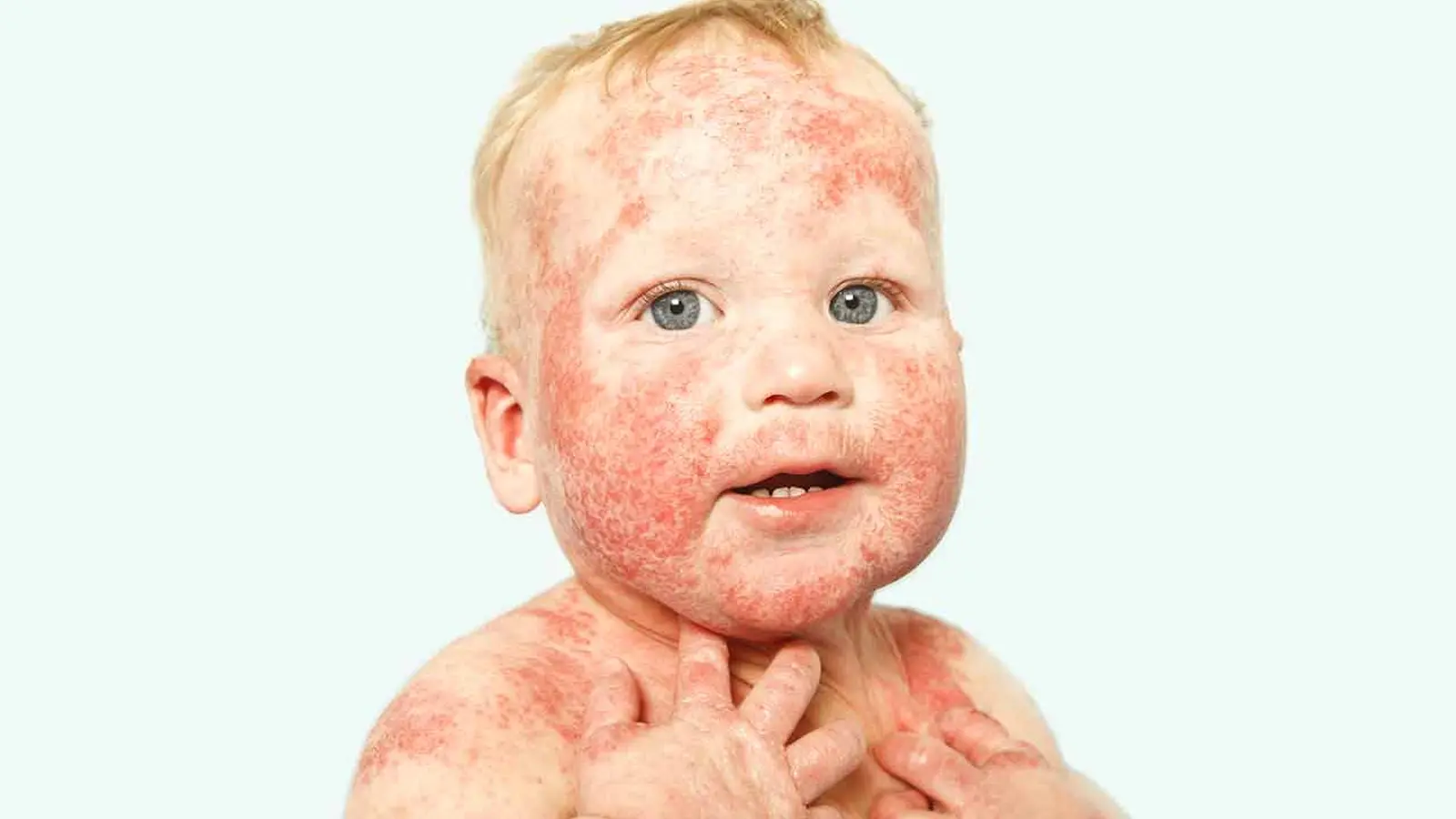5 Minutes
New research presented at the 2025 ACAAI meeting suggests that COVID-19 vaccination may do more than prevent coronavirus infection in children with atopic dermatitis (eczema). The study found vaccinated kids experienced fewer respiratory and skin infections and showed lower rates of allergy-related conditions compared with unvaccinated peers.
Study finds unexpected benefits for children with atopic dermatitis
Atopic dermatitis (AD), commonly called eczema, is an inflammatory skin disorder rooted in immune system imbalance. Many children with AD later develop additional allergic conditions such as asthma and allergic rhinitis — a pattern clinicians describe as the atopic march. Researchers asked whether COVID-19 vaccination could influence that trajectory.
Using a large health-record database, investigators compared two carefully matched pediatric cohorts: more than 5,700 vaccinated children with AD and an equal number of unvaccinated controls, all under 17 years of age. Those with prior COVID-19 infection or major concurrent illnesses were excluded to reduce confounding.
What the team measured and what they found
Study design and outcomes
The retrospective cohort analysis looked at common infectious diagnoses (ear infections, pneumonia, bronchitis, bronchiolitis, sinusitis, non-COVID viral infections, and several skin infections like impetigo and molluscum contagiosum) and allergic outcomes (asthma, allergic rhinitis, contact dermatitis, and food-triggered anaphylaxis). Researchers calculated relative risks and examined time-to-event for onset of these conditions after vaccination.

Key results
Vaccinated children with eczema had significantly lower rates of a broad set of infections and allergic complications compared with matched unvaccinated peers. In many cases the onset of conditions such as allergic rhinitis and common viral or ear infections occurred later among vaccinated children, suggesting both lower incidence and delayed progression. The analysis did not identify meaningful differences in psychiatric or growth-related outcomes between the groups.
Lead author Tristan Nguyen, BS, framed the significance plainly: "Children with atopic dermatitis face an elevated risk of both infections and evolving allergic disease. Our analysis shows that vaccination is associated with fewer subsequent infections and allergic events in this population." Principal investigator Zhibo Yang, MD, PhD, added that the data reinforce vaccine safety while highlighting potential broader immune benefits for children living with chronic allergic disorders.
Why these findings matter to families and clinicians
If confirmed by further work, the results could shift how pediatricians discuss COVID-19 vaccination with families of children who have eczema. Beyond direct protection against SARS-CoV-2, vaccination may reduce the burden of other common illnesses that frequently complicate life for children with AD — fewer ear infections, less pneumonia, and fewer skin infections can mean fewer doctor visits, less time missed from school, and decreased antibiotic use.
Immunologically, vaccines train the immune system and can modulate inflammatory responses. While the exact mechanisms behind the observed associations remain to be clarified, the study raises the possibility that COVID-19 vaccination could influence immune pathways linked to atopic disease progression.
Expert Insight
Dr. Elena Morales, a pediatric allergist not involved in the research, commented: "These are promising signals. Large retrospective datasets can reveal associations that warrant prospective study. Clinically, the takeaway is that vaccination appears safe and might bring added benefits for children with eczema — but we need more mechanistic and long-term data to understand why."
Researchers emphasize this study does not prove causation. Still, the combination of lower relative risks across many infection and allergy categories and the delayed timing of certain diagnoses after vaccination forms a compelling pattern that deserves follow-up in prospective cohorts and mechanistic studies.
For parents navigating decisions about pediatric COVID-19 vaccination, especially in children with chronic allergic conditions, these findings add evidence that vaccination is likely to be protective in multiple ways. Clinicians should continue to discuss risks and benefits individually, taking into account the child’s health history, exposure risks, and the evolving evidence base.
Source: scitechdaily
Comments
Reza
Hmm is it causal or just correlation? Retrospective studies can mislead, maybe vaccinated kids had better access to care or different exposure. Need prospective followup.
bioNix
Wow this is wild! Vaccines maybe cutting down ear and skin infections too? If true, big deal for kids with eczema. Curious about confounders tho, needs more study...


Leave a Comment